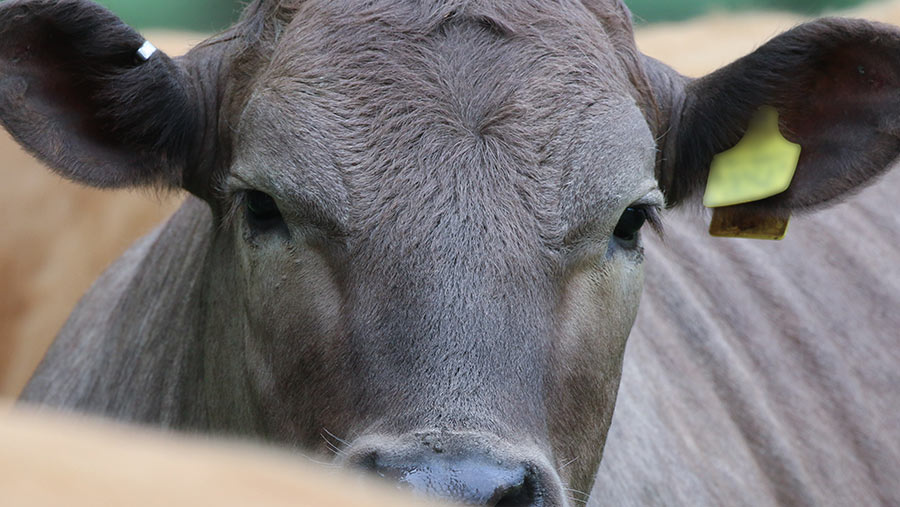Yarding cattle drop £40-£50 a head after processor cuts
 © Tim Scrivener
© Tim Scrivener Beef price cuts from processors have led to a 10p/kg drop in forward store cattle values over the past fortnight.
Factories blamed price drops of up to 30p/kg on a lack of BBQ weather, although analysts had already predicted price pressure as Covid restrictions eased and demand fell for British-sourced supermarket beef.
Many expect beef imports to supply a resurging hospitality and catering sector and will look to trade data later in the year for confirmation.
Grazing cattle and rearing calves have been largely unaffected. Supplies of both are seasonally tight and rainfall has supported steady grass growth.
However, in some areas, too much rain and cool temperatures have limited grass growth, meaning cows have had to be rehoused, limiting demand for summering animals.
See also: Dairy herd calf registrations hit highest level for a decade
Worcester
Deadweight cuts have taken about 5-10p/kg off yarding cattle at Worcester, where Bradley Towell of McCartneys and the team sold 178 stores last week (22 May).
And, while some cattle were coming to slightly less money, he said most of the entry were younger grazing cattle which didn’t see much change in value from previous sales.
Buyers were keen to secure cattle for the summer, buoyed by grass growing and recent rainfall.
Mr Towell said grazing cattle had made 230-250p/kg regularly for suckler-bred yearlings, while the best dairy-bred grazing cattle had hit 210-230p/kg.
Commenting on Ludlow’s recent bull trade, he said: “Last week (17 May) was difficult – the deadweight cuts the week before flushed a lot of cattle onto the market, but things have steadied since.”
North West Auctions
Trade for short-keep cattle was slightly easier on the week (21 May) at Lancaster following processor cuts, although grazing cattle were still in great demand.
An entry of about 200 head (two-thirds short-keep cattle) topped with three Angus bullocks at £1,550, with other Angus bullocks to £1,460 and British Blues at £1,370.
“Large, well-fleshed cattle have held their value, as have strong natives,” said Matthew Probert of North West Auctions. “With a slight drop in the deadweight price, finishers aren’t fighting for cattle like they were. They have sold 10 a week instead of 15 due to the price drops.”
Mr Probert said the short-keep cattle were back £50-£60 a head or “a couple of bids”.
However, he said confidence remained strong, adding that he expected demand for longer-term grazing cattle to remain very strong and for value to hold.
